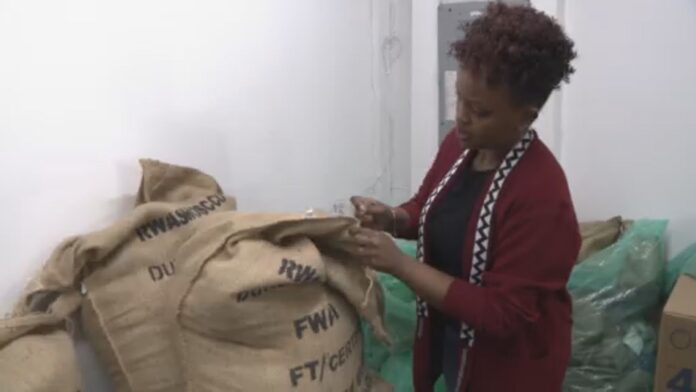A Vancouver resident who survived the Rwandan genocide nearly 30 years ago has launched a coffee company to raise money for fellow survivors’ mental health needs.
Not only does Neza Coffee source its beans from coffee farms run by Nadine Umutoni’s family and neighbours back home in Rwanda, but a portion of all profits will also go toward mental health and trauma resources for survivors of the brutal massacre — both in Rwanda and in Vancouver.
“It’s my life’s calling,” Umutoni told Global News.
Umutoni knows the need for that mental health therapy all too well.
In 1994, the Hutu ethnic majority in Rwanda set about systematically killing members of the country’s Tutsi ethnic minority. Thursday marks the 28th anniversary of the beginning of the genocide.
Between half a million and 800,000 Tutsis are believed to have been slaughtered within just three months, while the United Nations places the overall death toll — including some moderate Hutus opposed to the genocide — over 1 million.
Umutoni, a Tutsi, survived the massacre due to the kindness of a Hutu neighbour who helped her escape the country. She lost her mom, three brothers and two sisters in a single day shortly after the genocide began.
“It’s so hard to talk about,” Umutoni said, explaining this difficulty is felt by other survivors who had to focus on survival before addressing their own trauma.
Trending Stories
Feds consider adding COVID-19 boosters to be considered fully vaccinated
COVID 4th dose: Prioritize adults 80 and older, long-term care residents, NACI says
“We were not fortunate enough to deal with the atrocities that we have gone through,” she said. “We never got a chance to talk about it, and deal with it on an emotional level.”
Marking 25 years since Rwanda genocide – Apr 7, 2019
Umutoni’s connection to coffee is even stronger. Her grandmother, also lost in the genocide, was a coffee farmer who established a business that is still run by family members to this day.
Umutoni and her husband Dydo — a fellow genocide survivor who at one point hid in a coffee farm — buy the coffee at fair-trade prices directly from the co-op Umotoni’s family belongs to, cutting out middlemen she says can overcharge the farmers.
Neza — which means “greatness” in Rwandan — is only online currently, selling household bags of beans while also offering retailers a chance to buy wholesale. Bags can also be found at farmers’ markets in Vancouver.
Part of the proceeds go toward the Groupe de Anciens Etudiants Rescapes du Genocide (GAERG), a Rwandan group dedicated to mental health and trauma supports for genocide survivors, as well as local aid groups in Canada.
The money will help survivors pay to hire therapists who specialize in trauma, which Umutoni says can be prohibitively expensive in Vancouver.
Umutoni says she hopes to grow her business if only to further the impact she is looking to make.
“It’s what I want to do for the rest of my life,” she said.
© 2022 Global News, a division of Corus Entertainment Inc.



